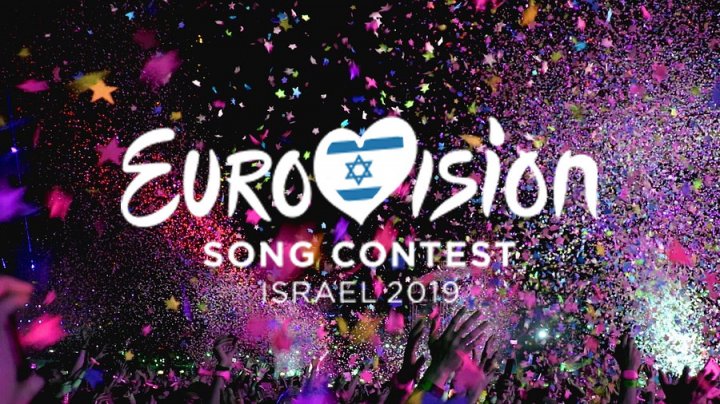Israel assures the participants at Eurovision won't be disturbed by protests
 foto: PUBLIKA.MD
foto: PUBLIKA.MD
Israel has said it will block activists who plan to disrupt the Eurovision Song Contest from entering the country, as anxiety mounts that the event, watched by a global TV audience, will become a focus for protests against the country’s treatment of the Palestinians.
The world’s longest-running televised song competition will take place on 14-18 May in the coastal city of Tel Aviv. Contestants have begun to arrive, stage lights have been hung and fresh grass has been laid for a massive party on the seafront.
The event has become a target for the Palestinian-led Boycott, Divestment, Sanctions (BDS) campaign, which accuses Israel of using music to “whitewash” its policy towards Palestinians in the occupied West Bank and Gaza, which this weekend experienced some of the deadliest clashes since the 2014 war between Israel and Hamas, which controls the blockaded enclave.
While none of the 42 acts taking part in Eurovision has pulled out, organisers fear demonstrators might exploit the show, which attracts hundreds of millions of viewers.
“This is going to be a huge party in which thousands of people will participate but we will remain extremely vigilant in order to make sure that no one comes here in order to disturb and destroy,” said a foreign ministry spokesman, Emmanuel Nahshon.
“We don’t want to prohibit the entry to the state of Israel for people. But on the other hand, if we know for certain that we will be facing people who are anti-Israel activists and whose sole purpose is to disturb the event then we will use the legal instruments that we have regarding the entry to Israel,” he said.
After publication, Nahson said only activists who planned to break Israeli laws would be denied entry.
This year’s contest has been steeped in political controversy. The prime minister, Benjamin Netanyahu, had planned to hold Eurovision in Jerusalem as part of the government’s campaign for global recognition of the holy city as Israel’s capital.
Israeli forces captured the eastern part of Jerusalem in 1967 and Palestinians claim the area as their future capital.
Jerusalem has twice hosted Eurovision, first in 1979 and again in 1999 after Dana International won with her song Diva, becoming a national hero in Israel and a global transgender icon.
However, the European Broadcasting Union (EBU), which sponsors the contest, chose Tel Aviv this year, and the chairman of its steering committee, Frank-Dieter Freiling, released a pointed statement calling for Netanyahu to give guarantees for “access for everyone to attend” and “freedom of expression”.
Palestinian and international artists plan to air an alternative event that will be broadcast online during the Eurovision finale. Named Globalvision, it will include live shots of concerts from Dublin to Bethlehem.
“Palestinians living in the West Bank and Gaza cannot attend the Eurovision finale in Tel Aviv due to the wall amongst many other factors,” the group said in a statement, referring to the barrier built along the border between Israel and the Palestinian territories.
“Globalvision is the platform without walls for Palestinian artists to shine, and for Israeli and global Eurovision fans to join them in the spirit of equality.”
One of its acts, Bashar Murad, is a 26-year-old Palestinian pop singer and music video director who has been a fan of Eurovision since he was a child. “Eurovision is supposed to be about bringing people together,” he said. “[But] it’s almost helping Israel to keep oppressing and keep occupying and it’s almost encouraging it.
“Although it is a fun pop competition, you can’t remove it from the context of where it is being held and who it is affecting.”
The contest will be held in the same week as Palestinians commemorate the Nakba, when more than 700,000 fled or were expelled from their homes in the war surrounding Israel’s creation 71 years ago.
Activists say the Expo Tel Aviv centre, the venue for the competition, was built on the land of the former Arab village of al-Shaykh Muwannis, which was emptied of its residents in 1948.
BDS, which was inspired by a South African anti-apartheid movement, has claimed several recent successes in isolating Israel. Last year, the singer Lana Del Ray joined 19 others to drop out of a summer festival, following a similar move by the New Zealand singer-songwriter Lorde months before.
The Israeli pop singer Netta Barzilai, who won the 2018 contest with her quirky beatboxing and chicken-dancing act, condemned boycott attempts. “This is a festival of light,” she told the Foreign Press Association in Jerusalem this week. “For people to boycott light is spreading darkness.”
Other contestants refrained from making overt political statements, although Iceland’s act – a black leather and metal-spiked group describing itself as “anti-capitalist, BDSM [bondage, discipline, dominance and submission], techno-dystopian” – released a bizarre statement challenging Netanyahu to a traditional Icelandic wresting match on the day after the final.
The group said if it wins the fight, it should be allowed to settle in Israel and establish the first “liberal BDSM colony on the Mediterranean coast”.